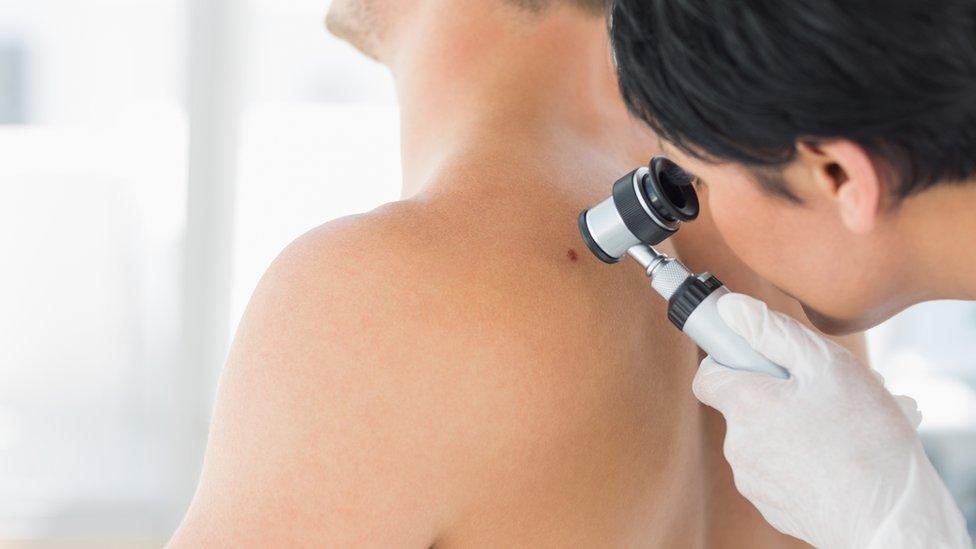Belfast medical students asked to wear 'skin cancer tattoos'
- Published
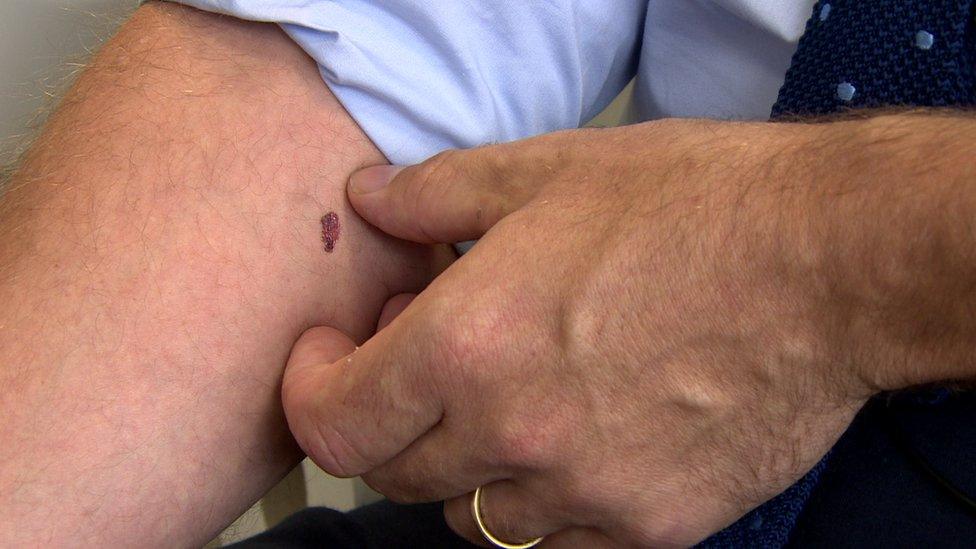
The study aims to give students an insight into life with melanoma
Medical students have been asked to wear temporary tattoos designed to look like skin cancer to give them an insight into living with melanoma.
The study by Queen's University, Belfast, involves students wearing the temporary transfers for 24 hours after hearing a real story from a patient.
"We want to train our students to be competent but also compassionate with patients," said Dr Gerry Gormley, QUB.
The clinical academic said the effect on some students had been "profound".
Skin cancer is the fifth most common cancer in the UK, claiming more than 2,000 lives every year.
In Northern Ireland, an average of 332 people were diagnosed with malignant melanoma cancer annually between 2010 and 2014.
Dr Gormley acknowledged that while the simulation cannot truly replicate what it is like to receive a skin cancer diagnosis, it did influence how some students thought about the illness.
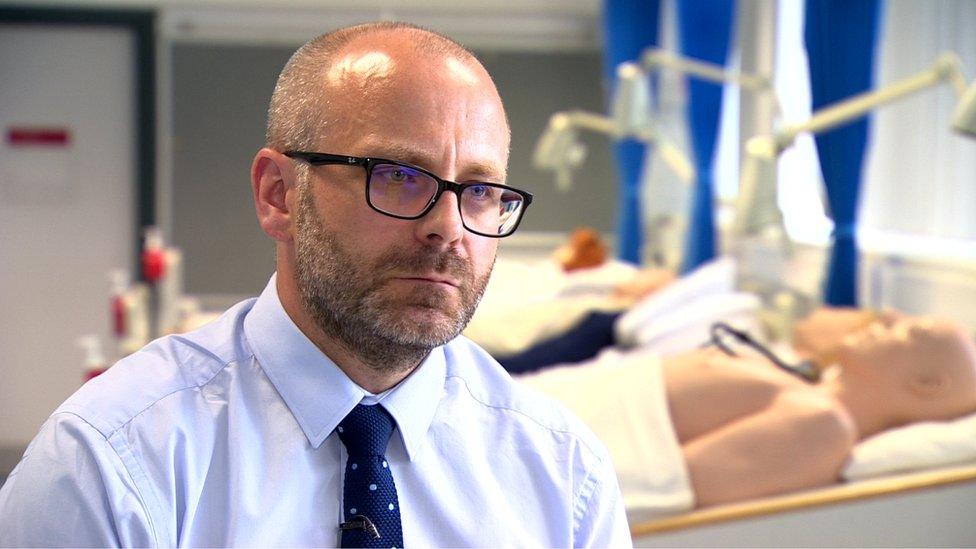
Dr Gerry Gormley said the aim of the study is to teach compassion to students
"At times it did feel quite real to them.
"They would forget about it but when it came back into their field of view again, they described a sense of concern and interestingly a sense of guilt, thinking 'maybe I shouldn't have had that time in the sun, been better with my sun protection' - so they were really wanting to do things differently."
'Experience is an educator'
Dr Michael Corr co-authored the study which is being published in the British Journal of Dermatology.
He said that while empathy could not be taught to medical students, experience was a great educator.
"People don't just want their doctors to have great medical knowledge and excellent clinical skills.
"They want compassionate doctors who are good communicators and while I don't think you can lecture someone on how to be empathetic, what we can do as doctors is reflect on our own experience and how we would like to be treated or our family to be treated.
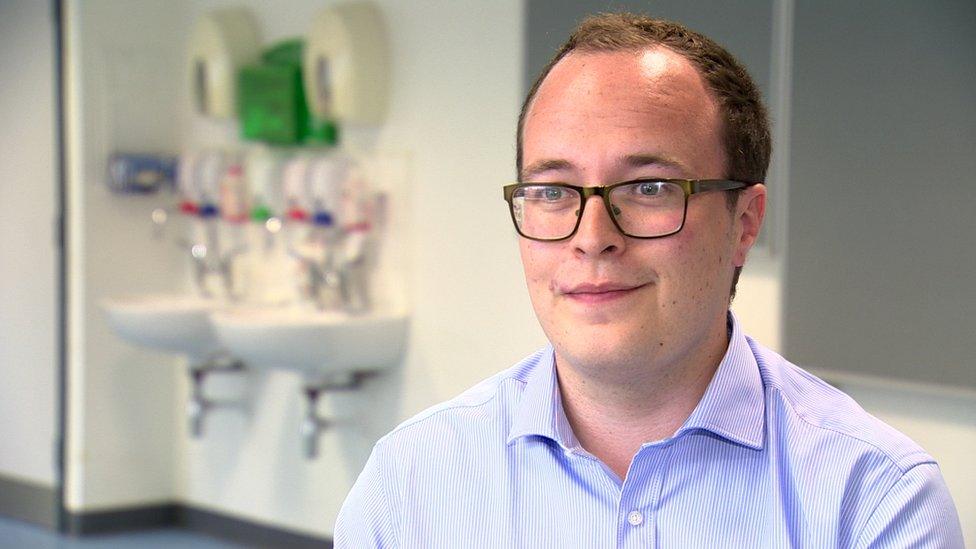
Dr Michael Corr, who co-authored the study, believes it encourages medical 'reflection'
"I think that pause, that moment of reflection, does promote empathy among doctors and health care professionals."
The medical students who took part said they were often surprised by their reactions.
'Person-centred'
Rachael Henderson is in the fourth year of her medical degree and said the experience would have a impact on how she deals with patients once she is qualified.
"I think it really made me think about treating the person as a whole rather than just treating a lesion on their arm.
"We talk about treating the patient rather than the condition and that's something I've learned from this - treating them holistically.

Fourth year students Rachel Henderson (left) and Kate Corney (right) were part of the study
Fellow medical student Kate Corney also gained unexpected insight courtesy of the small transfer tattoo.
"The psychological impact of the 1 cm tattoo is unexpected. I was surprised how much I wanted to cover it up - when I was going to the shops I would put a cardigan on because I didn't want anybody to notice it," she said.
"It also made me think about waiting times. If you have a lesion and - unlike us you can't wash it away after 24 hours - what the impact is for a patient worrying about something for weeks before they can see a doctor."
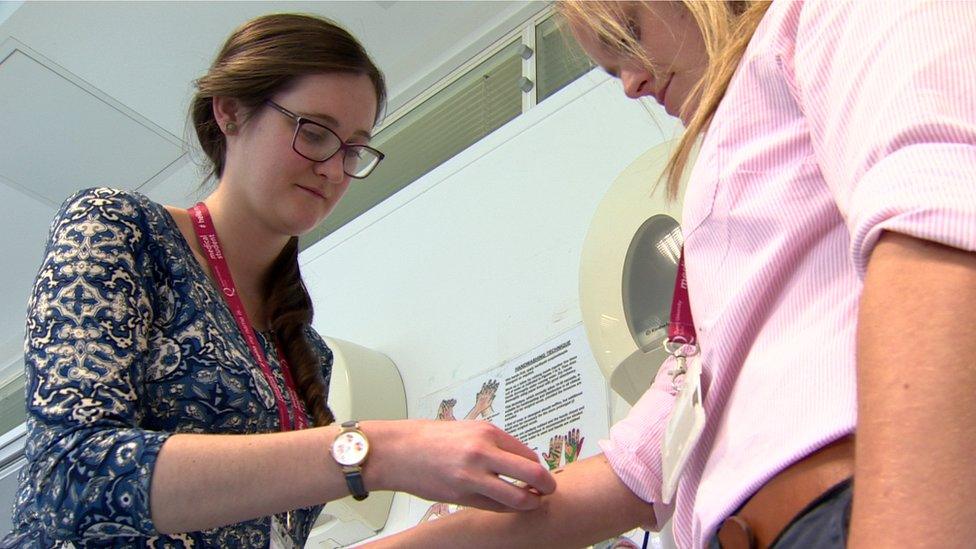
The students said the tattoos had an unexpected psychological impact
Dr Gormley said the findings of the research mean they now hope to expand their study.
"Our aspiration would be to roll it out here at Queens but also other medical schools as well and maybe even beyond the health care profession."
This aim is echoed by Dr Corr who said the simplicity of the idea is key.
"It is relatively cheap, replicable, yet is a profound experience for students which will hopefully make them better, more person-centred physicians in the future."
- Published12 July 2016

- Published1 July 2016
